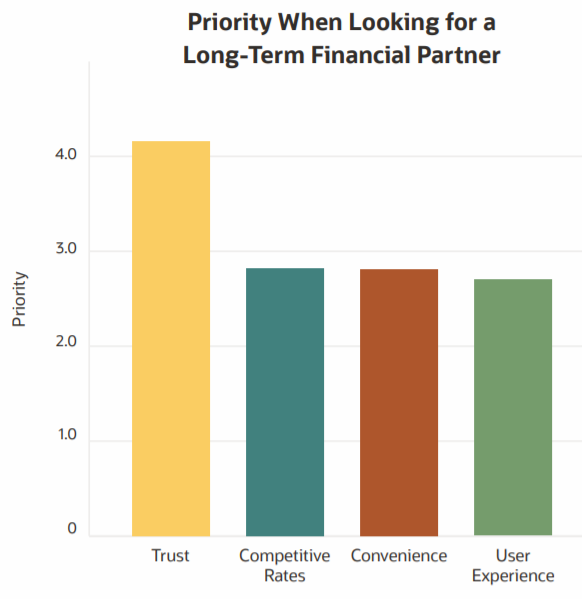 Banks and other financial service institutions continue to face various challenges, such as improved customer experience, industry boundaries, new digital competition, ongoing changes in regulations, and permanent pressures to reduce costs, in addition to continuous global changes.
Banks and other financial service institutions continue to face various challenges, such as improved customer experience, industry boundaries, new digital competition, ongoing changes in regulations, and permanent pressures to reduce costs, in addition to continuous global changes.
Many financial service institutions also must address the priorities of both corporate and consumer customers. The 2020 Global Treasurer’s Banking Transaction Survey revealed that 53% of corporate respondents say that they’re reviewing relationships with their main banks, and cost is the single greatest factor driving strategic relationship reviews, with more than 63% of respondents citing this reason. On the consumer and customer front, trust is the top determining factor in choosing a long-term financial partner among the gen Z and millennial respondents of Oracle’s Global Retail Banking Consumer Trends.
Businesses look to the cloud to save costs, scale operations quicker, and innovate. This trend is seen across every industry, but for financial institutions, several workloads frequently need to remain on-premises and close to the end user, which usually requires a hybrid cloud environment.
Hybrid environments can provide flexible solutions for businesses that want to take advantage of cloud services but still require some applications remain on-premises. The right hybrid deployment opens the benefits of the cloud to many more companies and helps solve business problems. It can also offer technologies to simplify integration and data movement across multicloud organizations.
With saving costs and scaling quicker, the cloud can help businesses deliver better customer experiences ultimately helping build more loyalty and driving growth. These businesses are also innovating with cloud to provide the experience that their customers want and improve overall operations. Financial services organizations have increased the focus on how to accelerate digital transformation to innovate and better service their clients and empower employees. These demands have put a focus on the use of cloud technologies and services to overcome obstacles and keep up with change.
Cloud adoption in financial services
To better understand the challenges and opportunities of cloud adoption for financial services organizations, let’s look at a recent example with Deutsche Bank.

With more than 40 petabytes of data in Oracle Databases, Deutsche Bank is embracing Oracle Exadata Cloud@Customer in a move that brings big cost savings.
As a turnaround effort by Germany’s Deutsche Bank gains momentum, its work with Oracle to modernize the data handling software behind key trading, risk management, and capital planning underlines technology’s importance in helping banks gain a competitive edge. CEO Christian Sewing has made modernizing the bank’s technology one of his signature efforts, aiming to simplify a range of platforms and hosting arrangements.
Oracle Databases underpin most Deutsche Bank’s applications and store more than 40 petabytes of its data. In June 2021, the bank said it planned to move databases worldwide to more current versions running on Oracle Exadata Cloud@Customer, which provides high-performance database services managed by Oracle in a private cloud.
Bernd Leukert, head of the bank’s technology, data, and innovation, has embarked on an IT modernization plan that aims to simplify the bank’s operations, exercise better controls, and reduce expenses. By the end of 2022, the bank plans to slice €1 billion ($1.18 billion) from technology costs.
“Oracle fits into [our] strategy and complements our existing journey,” said Leukert. “There will be applications staying in the on-premises world, and we need to invest in simplifying them. It fully supports our cloud strategy, supports consuming technology as a service, and comes with significant financial benefits.”
Oracle Cloud
Oracle Cloud Infrastructure (OCI) offers a comprehensive portfolio of cloud services to support running all of your IT in the cloud: Oracle software-as-a-service (SaaS) applications, the applications you migrate to the cloud or build using cloud native technologies, and applications run on OCI by our independent software vendor partners. All these technologies are part of the same cloud, available in cloud regions around the world, and in flexible hybrid cloud configurations wherever you need them. You can maintain complete control of your data so you can address data sovereignty, security, and connectivity concerns. You can deploy fully supported, crosscloud solutions across OCI and Azure quickly and easily with unified identity, fast interconnect, and collaborative support.
Get started today for free! Sign up for Oracle Cloud Free Tier and discover the major benefits of Oracle Cloud Infrastructure.